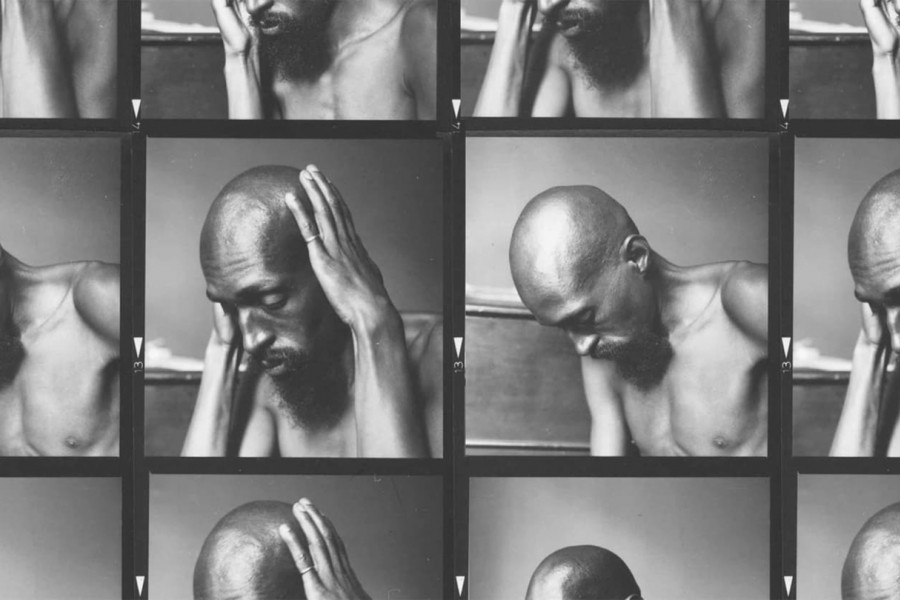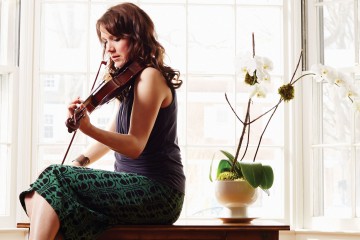Peabody's new music ensemble Now Hear This brings the current Julius Eastman revival to the Institute tonight with a performance of the late minimalist composer's "Gay Guerilla." The piece, originally composed for four pianos, is part of the ensemble's appropriately titled Revolution program taking place April 9 in Friedberg Hall. The concert also features George Crumb's "Black Angels," and "Integral Accident," a new piece by the experimental Baltimore quartet and guest artist Horse Lords.
The Eastman revival is one of the more illuminating and rewarding stories to course through contemporary music over the past few years. Eastman was a gay, African-American singer, pianist, and minimalist composer who passed away in 1990 at the age of 49; many of his friends and colleagues didn't know about his death until music critic Kyle Gann wrote an obituary that appeared in The Village Voice some nine months later. Eastman's music was politically aware, could swing more than his minimalist peers could ever imagine, and was filled with moments of sublime beauty.
Also see
Eastman and his music remained relatively unknown for nearly two decades, his memory kept quietly alive by historians and composers, such as Mary Jane Leach independently researching and championing him. Unjust Malaise, the first commercially available recording of Eastman's works, was released in 2005; the University of Rochester Press published an anthology of essays about his life and work in 2015. And the past three years have witnessed a welcomed, excited celebration and exploration of his works—with revival concerts and exhibitions in Los Angeles, New York, and Philadelphia—as well as a necessary discussion of the hows and whys a gay, black composer—and other non-white, non-male artists—fall through music history's cracks, and what can and should be done to nurture today's square pegs who resist the conventional round holes.
"As someone who plays a lot of minimalist music, I had been hearing a lot about Julius Eastman—himself a minimalist, a black, gay one at that," writes Courtney Orlando, NHT's artistic director, in an email. "I mention that he was black and gay because it was quite radical for that time and that place, the late '70s in the downtown NYC scene."
Eastman "thought of 'guerrillas' as people who were revolutionary, people who would spill blood for a worthy cause," Orlando continues. "He wanted to be a guerrilla for the cause of 'gay-dom' (Eastman's word). The word 'revolutionary' stuck with me, and when I sat down to talk with [NHT faculty advisor] David Smooke about other pieces to include on the program, he mentioned George Crumb's string quartet 'Black Angels,' which was composed during, and in reaction to, the Vietnam War. Not only is its subject revolutionary—the radical upheaval and changes that were taking place both in Vietnam and in other countries as those countries reacted to the atrocities of the war and their own involvement in it—but the music is revolutionary. Crumb incorporated elements into his string quartet that were wholly original—percussion instruments, bowed crystal glasses, shouting, chanting, whistling."
She adds that Smooke mentioned that Horse Lords—an instrumental quartet that recombines minimalism, the rhythms and energy of African music, ambient electronic music and electro-acoustic composition, with rock instrumentation—had played some Eastman as well. The band reworked Eastman's "Stay On It", originally composed for small ensemble and voice, for their guitar, bass, percussion, and saxophone.
Bassist Max Eilbacher says he and his bandmates had started listening to "Stay On It" in 2016, and by summer they were figuring out how to perform it themselves. "It's a beautiful piece of music, and it has a really nice pulse to it," he says. "It's also really groovy, and that's why we thought we could hear ourselves doing it. It's really minimal, almost simple, but it's extremely funky and groovy."
For the Revolution program, Horse Lords is performing with Now Hear This on "Integral Accident," a new piece they'd been working on their own. As a touring avant-rock band, Horse Lords doesn't write down their rhythmically intricate, hypnotically complex music; for this collaboration, guitarist Owen Gardner notated the piece in the mathematical Lindenmayer systems, which uses characters to create a set of rules to determine the rhythm, pitch, and duration of sounds played by acoustic and electronic instruments. The piece "leaves a lot of room for the players to make their own decisions," Eilbacher says. "We're trying to highlight a way of giving the players a radical way to play the music. It's not very straightforward."
"I loved the idea of bringing [Horse Lords] in to play, especially since they wanted to write a piece that incorporated members of NHT," Orlando says, pointing out that as a working musician herself, over her career she's played with a number of pop and rock artists. "Playing with rock bands is something I've done many a time, so it's a fantastic real world experience for the students—and will certainly shake up the new music concert experience."
Posted in Arts+Culture
Tagged lgbtq life, now hear this









